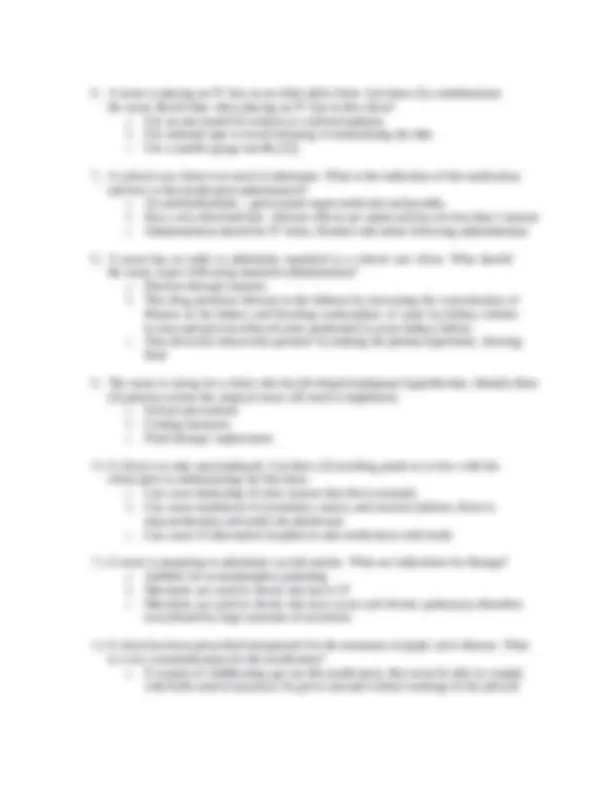ATI PHARM EXAM QUESTIONS WITH
COMPLETE SOLUTION
1) A nurse is caring for a client with many different medications who is newly
prescribed acetazolamide. What medications can interact with acetazolamide?
a. Sodium bicarbonate increased the risk of kidney stones
b. Acetazolamide can increase the risk of toxicity in quinidine
c. This medication can decrease blood levels of lithium
d. Metabolic acidosis can occur if someone is using high dose aspirin
e. This medication can increase osteomalacia in those who take phenytoin
2) What class of medication is amitriptyline and why is this medication used as an
adjuvant medication for pain?
a. Tricyclic antidepressant
b. Used for chronic pain in fibromyalgia, neuropathic/chronic pain (cramping,
aching, burning, darting, and lancinating pain), headaches, and lower back
pain
c. This medication enhances the effects of opioids, but it cannot be a substitute
for opioid medications
3) A nurse is caring for a client with asthma who asks if montelukast sodium can be
taken for acute asthma symptoms. When should montelukast sodium be taken?
a. A leukotriene modifier - prevents the effects of leukotrienes
b. Suppresses inflammation, bronchoconstriction, airway edema, and
mucus production
c. Long-term therapy in adults and children (>15 years old) to prevent
exercise- induced bronchospasms.
d. Medication is given orally
4) A nurse is caring for a client who has a prescription for digoxin. What are
manifestations for digoxin toxicity that the nurse should monitor for before
administering this medication?
a. Toxicity includes abdominal pain, anorexia, nausea, vomiting,
visual disturbances, bradycardia, and other arrhythmias.
b. Therapeutic levels range from 0.5-2 mg/mL.
c. Monitor apical pulse for 1 full minute before administering. Hold the dose
and notify health care provider if pulse rate is below 60 bpm in an adult.
5) A nurse is preparing to educate a client who has a new prescription for
levodopa/carbidopa. What should the nurse include in the client
instructions?
a. Advise client not to stop medication abruptly and to notify physician
b. Avoid pregnancy, if possible, when taking levodopa or pramipexole
c. Praminpexole with cimetidine can increase the amount of pramipexole in
the blood
d. Avoid high-protein meals and snacks
e. Medication “holidays” must be monitored in a hospital setting
f. Effects may not be noticeable for several weeks to months
g. Possible sudden loss of the effects of the medication and to inform the provider












